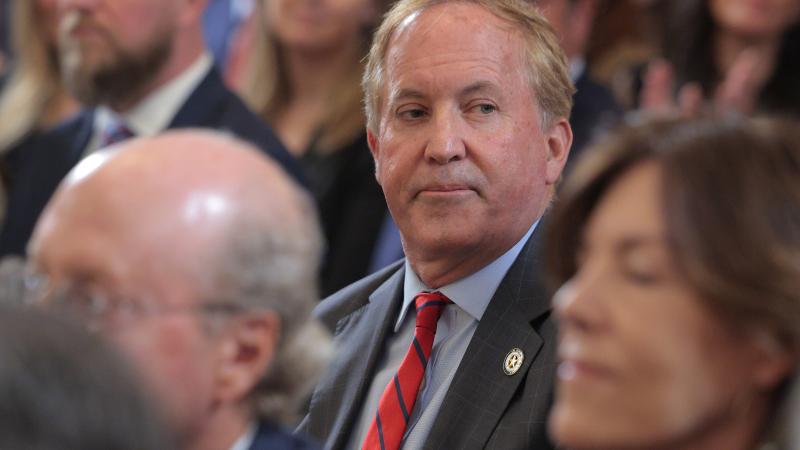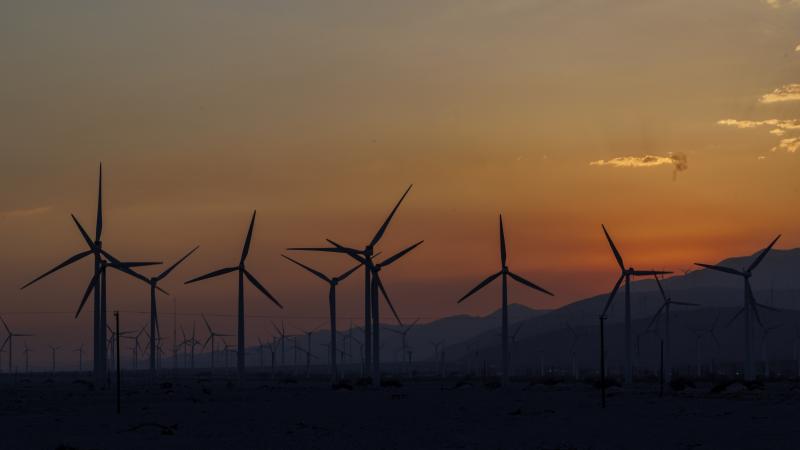GOP senators blast Biden’s proposed $110 billion tax hikes on oil, gas and coal
“America's working families and small businesses are facing immense challenges including high energy prices,” senators wrote.
Two dozen Republican U.S. senators are pushing back against the Biden administration's plan to increase taxes on the U.S. oil, natural gas and coal industries to the tune of over $110 billion.
U.S. Sen. John Barrasso, R-Wyo., led a coalition of 24 senators expressing “grave concern regarding the administration's continued hostility towards American energy production.” In a letter to U.S. Treasury Secretary Janet Yellen, they wrote, “America's working families and small businesses are facing immense challenges including high energy prices. At the same time, our allies and partners across the globe are asking for reliable American energy resources to escape their dependence on Russian energy and to deal with the energy crisis.”
“Instead of increasing US energy production, the administration is focused on increasing energy taxes,” they argued, “by once again doub[ling] down on weaponizing the tax code against US energy producers.”
The Treasury Department released “General Explanations of the Administration’s Fiscal Year 2025 Revenue Proposals (Green Book),” which explains $5 trillion in new tax increases outlined in the president’s budget.
In the department's “Modify Energy Taxes” section, it states it’s eliminating “fossil fuel tax preferences,” eliminating drawbacks on petroleum taxes that finance the oil spill liability trust fund and Superfund, and imposes a digital asset mining energy excise tax.
It states current law “provides several credits, deductions, and other special provisions that are targeted towards encouraging oil, gas, and coal production.” These provisions “distort markets by encouraging more investment in the fossil fuel sector than would occur under a neutral system. This market distortion is detrimental to long-term energy security and is also inconsistent with the Administration’s policy of supporting a clean energy economy, reducing our reliance on oil, and reducing greenhouse gas emissions.”
The Green Book also says the administration's plan is to increase the corporate income tax rate to 28%, increase the corporate alternative minimum tax rate to 21%, increase the excise tax rate, increase the top marginal income tax rate for high earners, and impose numerous taxes and regulations in several categories.
In addition to broad tax hikes, the administration “has decided to go even further by specifically imposing additional burdens on energy producers by removing virtually every longstanding tax provision in the Internal Revenue Code designed to support traditional energy production,” the senators argue.
The “alarming” proposals, they continued, “are neither policy neutral nor do they consider the fact that conventional energy production is the highest taxed industry in the world, and pays high rates of tax to the federal government – as well as state and local governments.” They also ignore “the detrimental impact the repeals will have.”
While the administration targets the oil, natural gas and coal industries, which provide 80% of the U.S.’s energy source, it ignores “the lavish subsidies and refundable tax credits afforded to the renewable energy industry,” when “no other nation produces, or refines, with the same environmental standards we see with American-made energy,” they argue.
The U.S. leads the world in petroleum and natural gas production, led by Texas, which also leads in emissions reductions. Last year, the Texas oil and natural gas industry broke records with the highest ever totals in production, exports, refining outcomes, and crude oil supply. This is after in 2022, the Texas natural gas industry “provided a lifeline” to Europe after the energy market was destabilized by “green energy” policies and the Russian-Ukrainian conflict, The Center Square reported.
Understanding the significance of the industry, even Texas Democratic members of Congress oppose the administration’s recent liquified natural gas export ban.
Instead of “unleashing American energy and innovation,” the administration is “throwing away one of our biggest economic and geopolitical advantages,” the senators argue. Its “crushing tax proposals, paired with the administration's heavy-handed regulations and mandates, would threaten American families' access to affordable and reliable energy, while giving our adversaries the upper-hand in global energy markets.”
As they criticized the administration, Republicans in the House prioritized six energy bills to encourage domestic production and denounce the president’s “anti-American energy policies.”
















